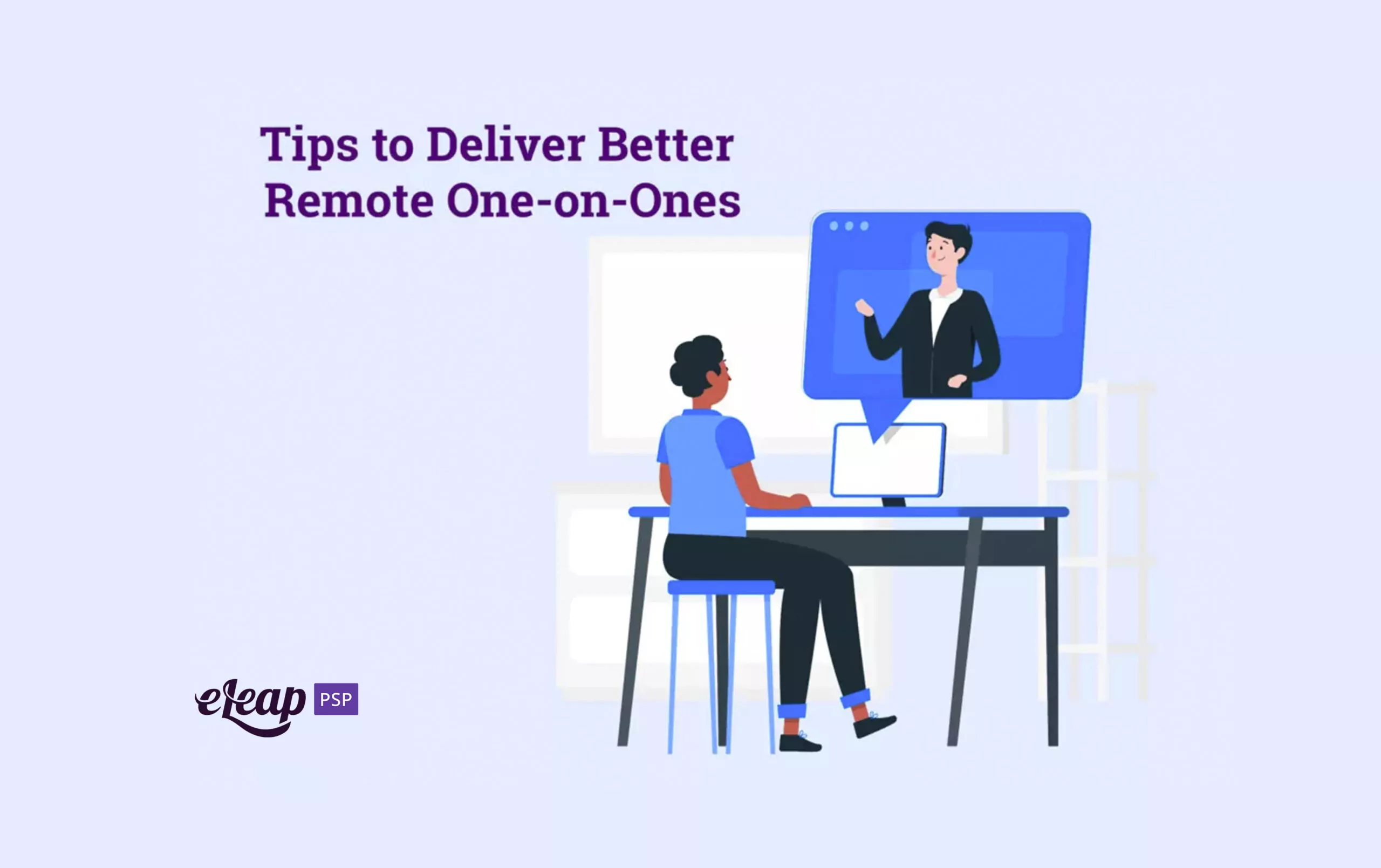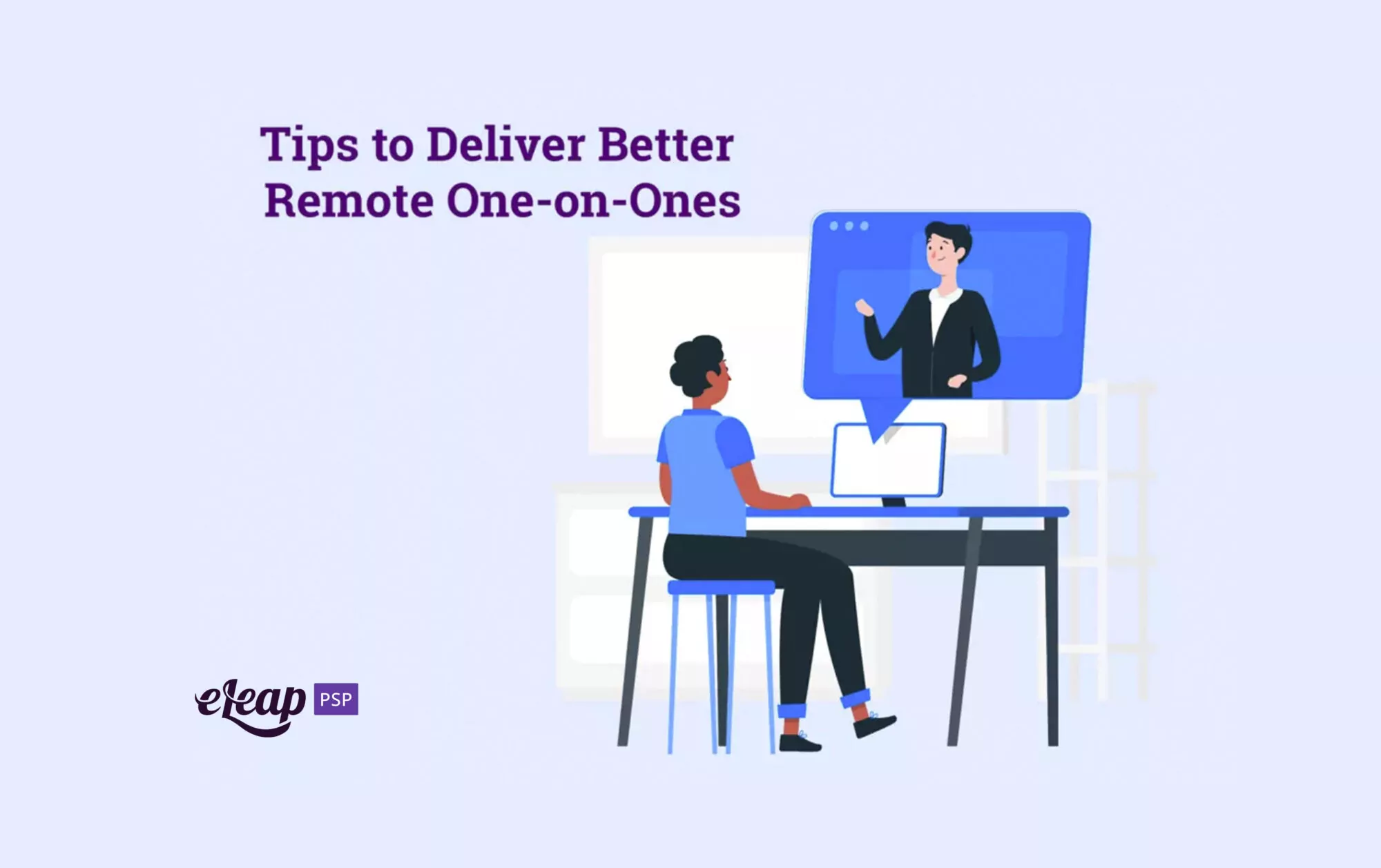Tips to Deliver Better Remote One-on-Ones

It can be easy to feel like COVID-19 has turned the world on its ear. That’s particularly true when it comes to managers and their ability to coach their teams. One-on-ones are vastly more effective than traditional performance management tactics in terms of engendering real behavior change, improving employee engagement, and foster real, lasting change for the business as a whole.
However, there’s a fly in the ointment – how do you deliver effective one-on-ones when everyone’s working from home? It can be challenging, but it’s not an insurmountable hurdle. In this post, we’ll take a few moments to discuss essential tips for delivering better remote one-on-ones.

Ask the Right Questions
In an in-person situation, you have the freedom for small talk during a one-on-one. A little few meaningless questions or observations about what’s going on in the office are natural. However, in a remote situation, things are more pressing, which can seem odd since remote workers are often assumed (incorrectly) to have much more free time than their in-office counterparts.
For managers/coaches, this means one thing – ask the right questions. Which ones are those? Meaningful questions. But meaningful to whom? Well, for everyone involved – the employee, the organization, the team, and even the coach. How do you tell if a question is meaningful enough to include?
The best advice here is to focus on asking discovery questions that help shed light on things that matter to the employee, their day-to-day experience, their duties, and more. Some examples of these areas include:
- What tasks do they find draining?
- Which tasks do they find energizing?
- What motivates them personally and professionally?
- What are their personal and professional goals?
- What do they want to achieve in terms of their professional development?
In addition to asking the right questions, coaches must be fully present for the responses. Don’t just nod along. Don’t let it go in one ear and out the other. Practice mindful listening and be actively present for the entire conversation. Ask follow-up questions to clarify. Repeat salient points to make sure that you’re tracking their meaning accurately.
Objectively Track Progress
In a way, we should rename performance management to progress management. That’s the kind of foundational shift in thinking that’s necessary, not just for managing remote teams correctly, but to getting away from old-school, punitive management styles that failed to build success.
In remote one-on-ones, you must be able to objectively track progress. Progress on what, though? This is where things get sticky. Your first instinct is likely to say “projects” or maybe “tasks”. You could be thinking KPIs or something similar, too.
What we’re really talking about here are OKRs (objective and key results). The term OKR goes far, far beyond what’s included with the idea of a KPI (key performance indicator). It also includes more than just business-focused results and can touch on personal and professional development, engagement, employee satisfaction, and so many other things that are critical to success across the business.
Focus on driving meaning and ownership through autonomy and accountability, and less on managing performance, and you’ll find that your teams are more successful. Measure progress with objective tracking, check-in frequently with your employees, and ask meaningful questions.
Focus on Recognition and Appreciation
Employees consistently perform better when they feel that their efforts are appreciated. No one wants to do something for no reward whatsoever. If your team members aren’t getting the recognition and appreciation they need for a job well done, they’re going to disengage.
That drives up your costs, invites churn as employees go looking for something better, increases onboarding and operating costs, decreases the business’s ability to compete – it’s a mess. You can avoid that pretty easily, though.
During your check-ins, make sure to show appreciation for what your employees do. Communicate directly. Recognize what they do, the challenges they face to do it, and the effort they put in to uphold their responsibilities. Recognition and appreciation lead directly to better accountability and transparency, connect employees with the bigger picture, and motivate them to new heights.
Does that mean you need to fawn over employees for doing what they’re paid to do? No, but a little bit of appreciation for a job well-done, for handling a difficult situation, for just showing up, can go a very long way.
Check On Their Mental and Physical Health
It’s hard to tell how people are doing when we can’t see them face to face. Even Zoom meetings don’t give us the same information we get during in-person meetings. A glance at someone can instinctively tell you that they’re not getting enough rest, or that they’re feeling poorly.
During your check-ins, make it a point to ask how each employee is doing, both mentally and physically. You should go beyond the basics, though. Introduce mental and physical health aids, and then track who’s using what. For instance, providing access to a meditation app for your team can help ensure that everyone’s got access to a powerful tool for mental and emotional health, and then you can track who’s using it and the results they’re seeing over time.
Another option is to encourage your team members to find ways to separate work and personal life, which can be hard to do when you’re working remotely. Offer suggestions like setting work hours, urging employees not to respond to work emails after hours (and make sure that you’re respecting those boundaries, too).
Creating a More Successful One-on-One
The tips we’ve discussed here will help ensure that your one-on-ones are more successful. The most important thing, though, is to keep doing them. It can be all too easy to feel lackadaisical about performance management during COVID-19 or to become frustrated about the situation and scale back your one-on-ones. Don’t do that. We all need interaction, guidance, and support to be our best selves, particularly during trying times like these.